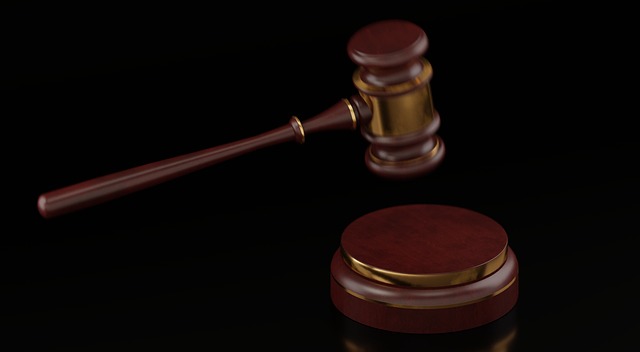RF Regulatory Agency investigations ensure RF spectrum compliance, following a structured Criminal Procedure Appeal Process Explained for alleged infractions. Businesses must understand this process to navigate inquiries, protect rights, and defend against charges, especially during appeals that involve complex legal arguments and technical expertise. The process safeguards fairness while holding entities accountable within regulatory frameworks.
“RF Regulatory Agency Investigations: An In-Depth Look at the Criminal Procedure Appeal Process Explained. This comprehensive guide delves into the intricacies of RF (Radio Frequency) regulatory inquiries, examining key aspects such as initiation criteria, criminal procedures, and appeal processes. Understanding these dynamics is crucial for industry players to navigate potential investigations effectively. From initial triggers to resolving disagreements, this article provides insights into the impact of RF agency actions on businesses, ensuring a clear tapestry of legal protections and obligations.”
- Understanding RF Regulatory Agency Investigations
- Initiating an Investigation: Criteria and Triggers
- Criminal Procedure in RF Agency Inquiries
- Appeal Process: Navigating Disagreements
- Impact of Investigations on Industry Players
Understanding RF Regulatory Agency Investigations

RF Regulatory Agency Investigations play a crucial role in upholding legal standards in the radio frequency (RF) spectrum. These inquiries delve into potential violations related to RF technologies, ensuring they align with governing laws and regulations. Understanding this process is essential for businesses operating within the RF space, as it can significantly impact their operations and future prospects.
The Criminal Procedure Appeal Process Explained is a vital aspect of these investigations. It outlines the steps taken by regulatory agencies when examining alleged infractions, ranging from initial complaints to evidence gathering and legal proceedings. A well-informed general criminal defense strategy becomes paramount for businesses facing RF regulatory scrutiny. By comprehending all stages of the investigative and enforcement process, respective business entities can better navigate the complexities of these inquiries, ensuring their rights are protected throughout.
Initiating an Investigation: Criteria and Triggers

Initiating an RF Regulatory Agency investigation is a meticulous process that hinges on specific criteria and triggers. These investigations often stem from concerns about non-compliance with radio frequency (RF) standards, which are vital for ensuring wireless communication safety. Factors like public health risks, potential environmental impact, or complaints from fellow licensees can set the wheels in motion. Regulatory agencies carefully evaluate these triggers before deciding to proceed, balancing the need to enforce regulations with the principles of due process, much like the criminal procedure appeal process explained in legal circles.
For clients facing such investigations, a robust white collar defense strategy becomes paramount. The goal is not only to navigate the complex regulatory landscape but also to avoid indictment by demonstrating good faith efforts to adhere to RF standards. This proactive approach can significantly influence the outcome, ensuring that businesses and their leaders protect their rights while addressing any perceived infractions effectively.
Criminal Procedure in RF Agency Inquiries

In the event of a criminal investigation by an RF Regulatory Agency, understanding the intricacies of the Criminal Procedure Appeal Process is paramount for both corporate and individual clients facing high-stakes cases. The process begins with a thorough investigation where agency investigators gather evidence, conduct interviews, and assess compliance against relevant laws and regulations. If charges are filed, accused parties have legal options to challenge these allegations through robust defenses tailored to their unique circumstances.
Appeals in RF regulatory matters often involve complex legal arguments, technical expertise, and strategic navigation. For his clients, ensuring the best outcome requires a deep understanding of administrative law, procedural rules, and the specific appeal process within the agency’s jurisdiction. Legal teams can advocate for their clients’ rights, challenge evidence, and present mitigating factors to potentially alter or dismiss charges, thereby mitigating potential penalties and reputational damage.
Appeal Process: Navigating Disagreements

When an individual or entity faces RF Regulatory Agency (RFRA) investigations, understanding the appeal process is crucial in navigating disagreements and ensuring due process rights. The Criminal Procedure Appeal Process Explained plays a significant role in high-stakes cases across the country, offering a safety net for those facing potential wrongful accusations.
In the event of an unfavorable outcome during the initial investigation, parties involved have the right to appeal, seeking a complete dismissal of all charges. This process involves careful consideration and documentation of legal errors or procedural irregularities. It is essential to gather compelling evidence and present it in a clear, structured manner to support the appeal, especially as these cases can have significant financial and reputational implications.
Impact of Investigations on Industry Players

RF Regulatory Agency investigations can significantly shape the landscape for industry players. When an agency initiates an inquiry, companies within the affected sector often experience a period of heightened uncertainty and scrutiny. This process can lead to temporary disruptions in operations, particularly if the investigation uncovers potential non-compliance with regulations or even more serious issues that may result in legal consequences. During these times, effective general criminal defense strategies become paramount for businesses aiming to avoid indictment and protect their philanthropic and political communities’ interests.
The impact of such investigations extends beyond the immediate legal outcomes. Industry reputation can be affected, and public perception plays a crucial role in the long-term success of companies. As the criminal procedure appeal process explains, investigative findings must be rigorously evaluated, ensuring due process rights are respected while holding entities accountable for their actions. This delicate balance is essential to maintaining fairness and fostering an environment where businesses can thrive within established regulatory frameworks.
RF Regulatory Agency investigations play a pivotal role in ensuring the integrity and safety of wireless technologies. By understanding the initiation, conduct, and appeal processes involved, industry players can better prepare for potential scrutiny, ensuring compliance and mitigating risks. This comprehensive overview of criminal procedure in RF agency inquiries provides a clear path to navigating these complex scenarios, with a focus on the crucial appeal process, ultimately fostering a more transparent and fair environment within the industry.






